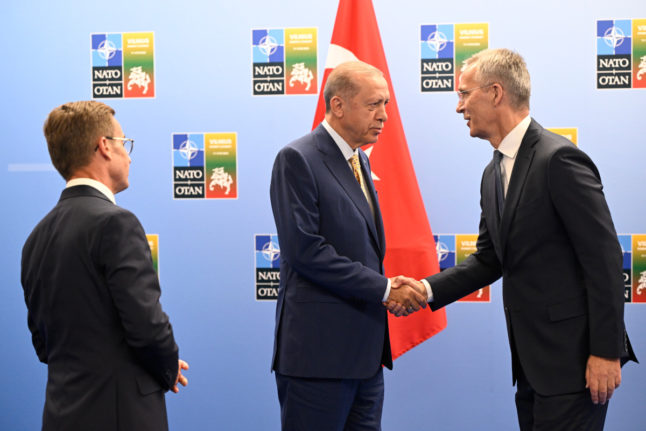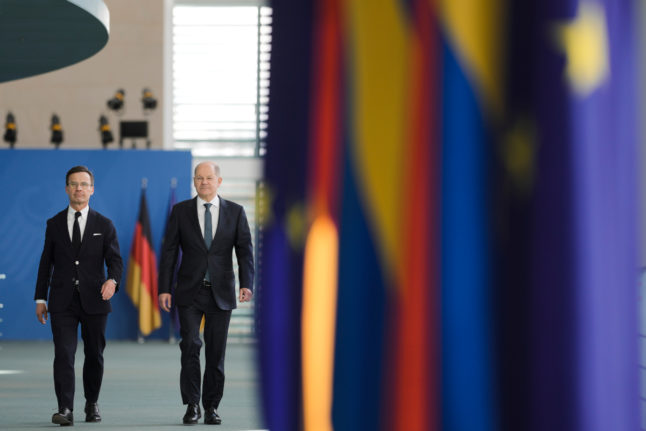The vote came after more than a year of delays that upset Western efforts to show resolve in the face of Russia’s war on Ukraine.
Lawmakers voted 287-55 in favour of the Nordic nation’s bid to become the 32nd member of the US-led alliance, leaving Nato member Hungary as the last holdout in the accession process.
Sweden’s prime minister Ulf Kristersson welcomed the vote on Twitter, saying that it was “positive” that the Turkish parliament had taken this step.
Today we are one step closer to becoming a full member of NATO. Positive that the Grand General Assembly of Türkiye has voted in favour of Sweden’s NATO accession.
— SwedishPM (@SwedishPM) January 23, 2024
Sweden’s foreign minister, Tobias Billström, said at a doorstep meeting with journalists after the vote that he thought that Erdogan should now be able to sign the document “pretty quickly”.
He said that the ratification process had been “a long journey” which “would of course not be finished” until Erdogan has signed the documents and sent them to Washington.
EXPLAINED:
Ankara forced the Nordic countries to split up their applications after finding fault with Sweden and approving Finland after a few rounds of talks.
Finland’s membership last April doubled the length of Nato’s border with Russia and boosted the defences of three tiny Baltic nations that joined the bloc following the collapse of the former Soviet Union.
Sweden and Finland pursued a policy of military non-alignment during the Cold War era between the Soviet Union and the West.
But the Ukraine war upturned geopolitical calculations and forced the two to seek the nuclear protection afforded by the world’s most powerful defence organisation.
Hungary has followed Turkey’s lead throughout the Nato accession process and was expected to approve Sweden’s without significant resistance.
Hungarian Prime Minister Viktor Orban on Tuesday invited his Swedish counterpart to Budapest to discuss the bid.
But hints emerged on Tuesday of strains between Stockholm and Budapest. Swedish Foreign Minister Tobias Billström said he saw “no reason” to negotiate with Hungary about Stockholm’s Nato candidacy “at this point”.



 Please whitelist us to continue reading.
Please whitelist us to continue reading.
Member comments